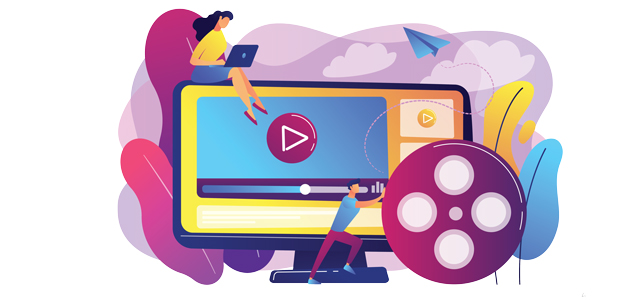
How to combat video meeting fatigue while working from home
As the UK emerges from lockdown for a second time, it’s crucial we keep up the conversations we’ve been having about the importance of a healthy work life balance. The majority of people who I’ve spoken to have enjoyed the freedom of remote working and are keen to retain some of this newly-discovered flexibility in the future. With this new mindset and the ongoing restrictions, I certainly don’t anticipate an immediate rush back to offices.
With working from home set to be the norm, even if it’s only a few days a week, it’s crucial that we solve the issue of employees feeling fatigued after days of back-to-back video calls. It’s understandable - when speaking on video, our brains have to work harder to make sense of body language, facial expressions and the tone of someone’s voice. But it doesn’t have to be like this. With some small adjustments, we can take the stress out of working from home and instead use the technology to improve the way we work.
- Don’t stick to one channel
One of the hardest things to overcome when working remotely is dealing with different types of communication. Being in meetings all day can be tiring, even when they’re in person - many companies have just switched to adding more remote meetings in the diaries rather than exploring alternative methods of communication.
It’s important to consider whether meetings are absolutely necessary. More often than not, decisions can be made and work reviewed without a meeting. Successful remote working organisations are deliberate in their use of meetings, arranging them when everyone has enough information to create a meaningful discussion.
Many close-knit teams have found it tricky to adjust to being unable to ask a quick question or drop by a colleague’s desk to get their view on an issue. Sending a calendar invite for a catch-up can feel overly formal - it actually makes much more sense to use messaging platforms, such as Slack, or ask someone to quickly drop by your video room. This way you can avoid the calendar entirely and let conversation flow more naturally.
- Work smarter, not harder
This is super important - make sure to plan time away from video calls into your daily routine. Quick breaks between meetings like getting a hot drink, stretching or exercising all help to pause and refresh, giving space to shift between the professional and the personal. Not only will daily tasks become more manageable but your focus and productivity will improve as a result.
At home, it can be easy to lose sight of the work/life balance when instead we should be taking advantage of this additional time for friends and family. Physical exercise is also really important, especially when we’re sitting at our desks for the majority of the day. I’ve started working with a personal trainer over Whereby once a week and some of my colleagues prefer to work later but take a two hour lunch break to get out and about.
- Socialising is key
People love working for start-ups because of the great relationships you develop within tight-knit teams. It’s really important to maintain this while working remotely - just because you’re not in the same physical room as your colleagues doesn’t mean you can’t work together. At Whereby, we have a ‘Friday Friyay’ 30 minute social hangout each week where we talk about non-work related topics like “the weirdest food you’ve ever eaten” to end the week on a fun note.
Creating an open forum is also important. Our support team has maintained this through their monthly “Power Hours”, where they put on some music and go through queries together - giving the sense of sitting in the same office. Planning time for these get-togethers goes a long way to maintaining the close relationships you find within small teams.
- Focus on one thing at a time
When we’re in a meeting in person, most people wouldn’t think to do other work at the same time and we need to make sure we apply this to video meetings. It can be easy to just check your emails or review work while you're on a call, but this doesn’t actually mean you get more work done. Research has shown that doing multiple tasks simultaneously actually costs up to 40% of productive time in the long term. So, when in a video meeting, make sure to give it your undivided attention. Close down any tabs that might distract you and hold off replying to messages until the meeting is over - your responses will be even more considered and thorough when you are not on a video chat.

